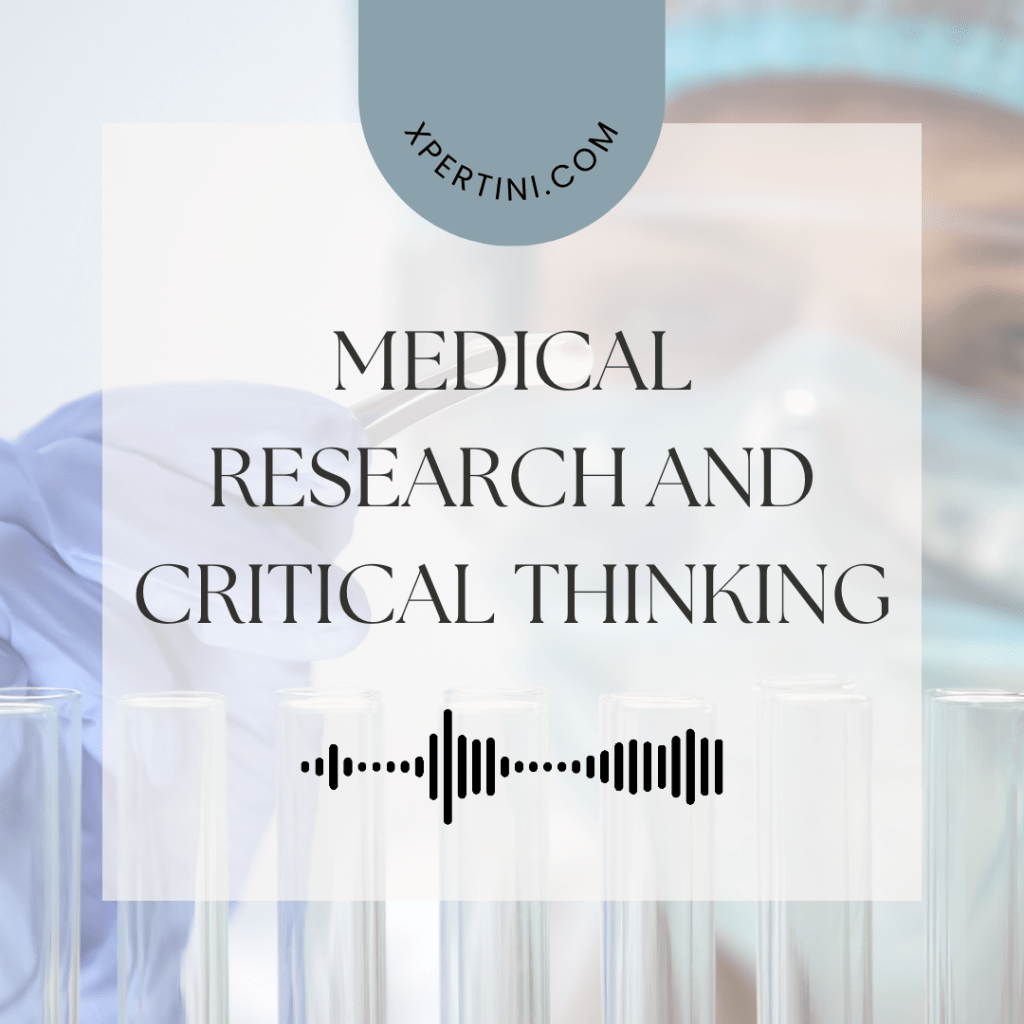Medical Research and Critical Thinking
Course Summary
In this comprehensive medical research course, learners will start on a journey through the fundamental aspects of the field, gaining an understanding of the complexities that define modern healthcare research. The course covers a variety of topics, appealing to both aspiring professionals and individuals aiming to enhance their understanding in this ever-evolving field.
The exploration commences with an insightful introduction to the historical evolution of medical research. Learners delve into key milestones and contributors who have shaped the trajectory of the field over centuries. This historical perspective serves as a foundation, providing context for the current landscape of medical research.
Moving forward, participants are guided through the various methodologies employed in medical research, uncovering the complexities of study design principles. From experimental designs to observational studies, the course elucidates the strengths and limitations of each approach, equipping learners with a comprehensive toolkit for conducting robust research.
A pivotal component of the course revolves around evidence-based practice. Participants gain an understanding of the role evidence plays in healthcare decision-making, coupled with the critical evaluation of evidence-based guidelines. This segment serves as a testament to the course’s commitment to instilling a discerning approach to integrating evidence into medical practice.
Statistical concepts take center stage as the course delves into the basics of data interpretation and statistical analysis in medical research. Learners grasp fundamental statistical principles and refine their skills in interpreting data from healthcare studies, ensuring a solid foundation for informed decision-making.
Effective communication is emphasized as a crucial skill in the research domain. Strategies for presenting research findings and honing written communication skills are explored, empowering participants to convey their insights effectively to diverse audiences.
Collaborative research is a key focus, shedding light on the team-based aspects of research projects. Strategies for fostering effective collaboration within research teams are presented, emphasizing the synergy required for successful outcomes in the complex landscape of medical research.
The course pivots towards problem-solving in healthcare, challenging learners to apply critical thinking to real-world challenges. Analyzing and proposing solutions to healthcare problems become integral skills, aligning with the course’s goal of cultivating adept problem-solvers in the medical research domain.
The penultimate lesson explores current trends in medical research, providing an overview of recent advancements and emerging areas of research interest. Learners are brought up-to-date with the latest developments, preparing them to contribute meaningfully to the evolving landscape of medical research.
Finally, the course concludes with insights into diverse career paths in medical research. Aspiring professionals receive guidance on building successful careers in the field, cementing the course’s commitment to not only imparting knowledge but also fostering the growth and development of future leaders in medical research.
Course Overview
Medical Research and Critical Thinking is a comprehensive course tailored for individuals aspiring to forge a career in medicine and health. This course is designed to instill essential skills and knowledge crucial for critically evaluating and contributing to medical research, fostering a deep understanding of the scientific process, and enhancing analytical thinking in healthcare.
Course Objectives
- Develop critical thinking skills in the context of medical research.
- Understand the importance of evidence-based practice in healthcare.
- Acquire knowledge of research methodologies relevant to the medical field.
- Enhance the ability to critically evaluate scientific literature.
- Gain proficiency in data interpretation and statistical analysis.
- Develop effective communication skills for presenting and discussing research findings.
- Cultivate a research-oriented mindset for problem-solving in healthcare.
- Explore the historical evolution of medical research and its impact on current practices.
- Identify and assess career opportunities in the field of medical research.
Course Outcomes
- Demonstrate the ability to critically analyze and evaluate medical research literature.
- Apply appropriate research methodologies in designing and conducting medical research studies.
- Effectively communicate research findings through oral and written presentations.
- Integrate evidence-based practices into healthcare decision-making.
- Utilize statistical analysis techniques for data interpretation.
- Collaborate with peers in a research-oriented team environment.
- Recognize the historical milestones and key contributors in the field of medical research.
- Engage in problem-solving exercises related to real-world healthcare challenges.
- Explore and evaluate career opportunities in medical research.
- Develop a critical awareness of the ethical considerations in medical research.
Course Audience
- Aspiring medical researchers
- Healthcare professionals seeking to enhance research skills
- Students pursuing careers in healthcare or related fields
- Individuals interested in evidence-based healthcare practices

